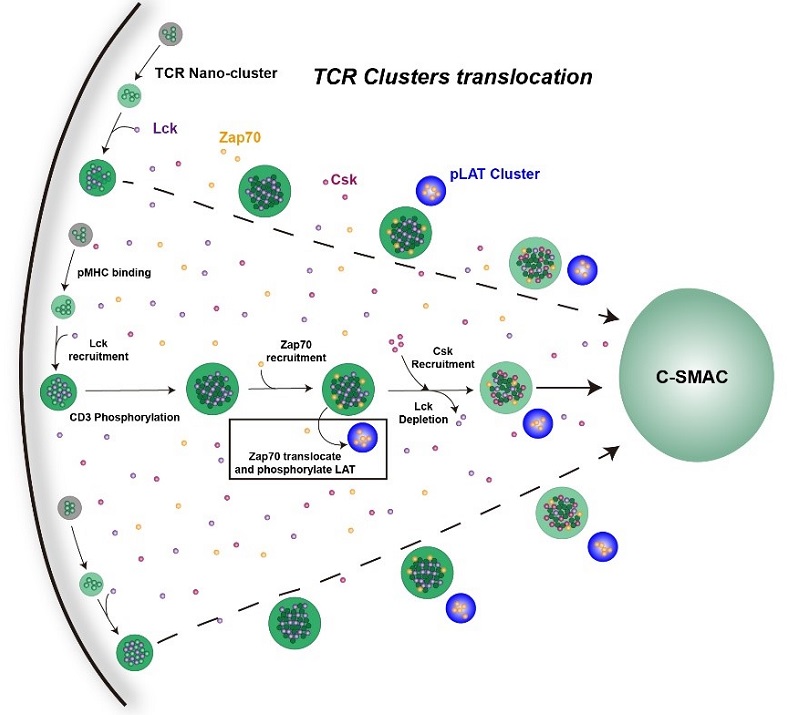Researchers Reveal a Phase Separated Mechanism for T-Cell activation
Receptor-ligand engagement commonly leads to the formation of clusters on the cell surface, where signaling molecules are selectively recruited or excluded. These clusters act as signaling hubs, governing various cellular events. Although these clusters are typically temporary and can be disassembled to halt signaling, the precise regulatory mechanisms that govern their dynamics remain inadequately understood.
As a typical example, the T cell receptor (TCR), a crucial antigen receptor in the immune system, undergoes spatiotemporally dynamic clustering to facilitate both strong and time-limited signaling, thereby initiating adaptive immune responses.
In a study published in PNAS, a collaborative team led by Profs. LOU Jizhong, XU Chenqi, and CHEN Wei identified a phase-separation mechanism controlling dynamic TCR clustering and signaling. In the study, the researchers found the TCR signaling component CD3ε chain can condensate with Lck kinase through liquid-liquid phase separation, which promotes TCR clustering and enhances Lck-mediated CD3 phosphorylation.
Phosphorylated CD3ε subsequently recruits Csk, a high-affinity competitor, to dissolve the functional Lck/TCR condensate. Modulating CD3ε interactions with Lck or Csk directly affects the clustering dynamics, leading to altered levels of signaling and cytokine production. The self-programmed condensation and dissolvement is thus a built-in mechanism of TCR signaling.
This study has revealed a self-programmed condensation dynamics that potentially holds significance beyond the specific case of T cell receptors. This mechanism may have broader implications for other membrane receptors that undergo ligand-regulated dynamic clustering, serving as a universal mechanism for signal transduction across cell membranes.

Schematic of immune synapse formation induced by TCR/Lck phase separation
Article link: https://www.pnas.org/doi/10.1073/pnas.2217301120
Contact: LOU Jizhong
Institute of Biophysics, Chinese Academy of Sciences
Beijing 100101, China
Email: jlou@ibp.ac.cn
(Reported by Prof. LOU Jizhong's group)

